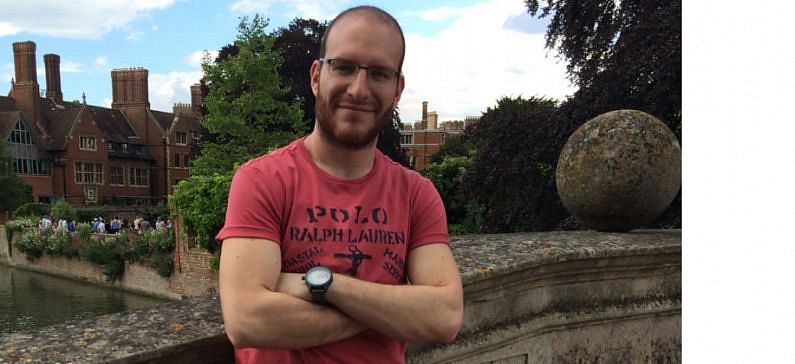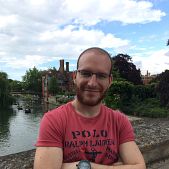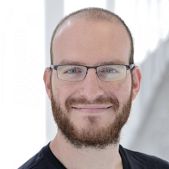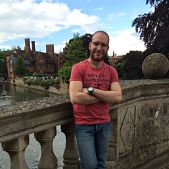1. First of all could you provide us with some basic information such as your place of birth and some information from your childhood?
I was born and raised in Piraeus where my favorite things were football, Pasalimani and Olympiakos.
2. When and why did you decide to study abroad and choose this field of expertise?
To begin with, my BSc was on Medical Laboratories (Biomedical Sciences) from the TEI of Athens where I graduated with distinction (Arista). After that I finished a 2-years MSc in Human Neoplastic Disease (Cancer studies) from the Medical School of Athens graduating again with distinction (Arista). In parallel with my MSc studies, I was doing research at the Medical School of Athens supervised by Dr L. Nakopoulou and Dr Ioanna Giannopoulou, where I realized that research is what I should do next. During my stay in that lab, we publish a couple of papers.
My next career step was Singapore as I got the prestigious A’ Star Graduate Research Scholarship for international students. I spent there a year and a half, working on cancer and cell cycle and supervised by Dr Philipp Kaldis.
Towards the end of the Singaporean scholarship, I applied for a very prestigious 4-year PhD position funded by the Wellcome Trust Sanger Institute and the University of Cambridge. As you can imagine, I got the position and I joined Dr Vassiliou’s group mainly focusing on Acute Myeloid Leukemia (AML).
3. You were the first author of the research that discovered the Achilles’ heel of leukemia. Can you give us details about your research and what is the next step?
My main research focus is to identify novel biological pathways and therapies for AML using advanced biotechnology tools such as CRISPR-Cas9 technologies. In our current published paper we show that by improving and customizing the CRISPR technology, we were able to create a comprehensive catalogue of genes, essential for AML. That important achievement, gave us the chance to shortlist the druggable genes (gene that drug can be made to target it) and start validating some of them such as KAT2A with very promising outcomes.
As next step, we are already collaborating with numerous pharmaceutical companies such as GSK and Astra Zeneca in order to develop novel molecules or use already existing ones targeting genes derived from our genetic screens. The aim is to start pre-clinical and clinical trials the soonest possible. In parallel, we are using our CRISPR technology to identify new therapeutic combinations using existing drugs for AML as well as drugs (drug repurposing) that have been developed for other diseases.
4. What is your dream goal?
My dream goal is to create numerous novel and efficient therapeutic schemas for AML, leading to the significant reduction of the number of people passing from this aggressive disease.
5. Would you consider returning back to Greece at some point? We all know the difficulties researchers face in our country
I would love to return back to Greece but science is a very competitive field and unfortunately at the moment my country doesn’t have the standards to follow that competition. Hence, it wouldn’t have been wise to leave Cambridge, especially now that, after a lot of hard work and sacrifices, I start seeing the results of my efforts. Also, after getting such exciting results it is our commitment to follow up each and every drug target we think worth it so that we can pave the way for future cancer elimination.
6. What does Greece mean for you?
Mother Greece is a holy place and I am very proud I am Greek. Is the beautiful place I was born and experienced life as a kid, teenager and adult. No matter how far I am, I am always thinking of Greece and I am trying to be the best representative of my country. Let’s say that it’s like an obligation for me.
7. If you could address a question to all Greeks, what would you like to ask them?
I will ask something that I have asked my self some years ago, before all this starts: Have you ever thought how many talents you have and how creative you can become if you start exploring them?












